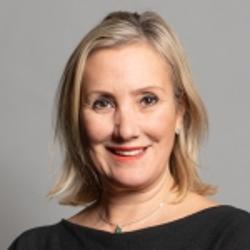Pre-school Education: Males
(asked on 9th September 2016) - View SourceQuestion to the Department for Education:
To ask the Secretary of State for Education, what assessment she has made of the implications for her policies of the findings on the gender pay gap for early language attainment at age five in Save the Children's report, entitled The Lost Boys: How boys are falling behind in early years, published in July 2016.
The Save the Children report, The Lost Boys: How boys are falling behind in the early years, addresses the gender gap of boys falling behind in language and literacy in the early years. I would like to clarify to the Hon. Member that the report does not refer to pay. The answer to this parliamentary question therefore sets out what Government are doing to support disadvantaged children regardless of background or gender.
The Government recognises a key part of raising the standard of education for all children is to ensure they receive a good level of development in literacy and numeracy before they start school at age five. This is why in 2010 we extended the free entitlement to 15 hours for all three and four year olds, and in 2013 introduced the entitlement for two-year-olds which has increased early education take-up for children from the most disadvantaged families. We have also introduced an early years pupil premium to help providers support the learning and development of children from disadvantaged backgrounds.
The Early Years Foundation Stage (EYFS) framework sets the prime areas of learning which early years providers must follow. This includes a focus on communication and language. The Early Years Foundation stage is published on gov.uk, available at: https://www.gov.uk/government/uploads/system/uploads/attachment_data/file/335504/EYFS_framework_from_1_September_2014__with_clarification_note.pdf
The 2014-15 EYFS Profile results tell us that the proportion of children achieving a good level of development continues to increase – 66 % in 2015, compared to 60% in 2014 and 52% in 2013. The EYFS Profile results also show that more than 80% of children are reaching the expected communication and language skills by age five. A higher proportion of children eligible for free school meals are achieving a good level of development – 51% in 2015 compared to 45% in 2014. Although the gap between disadvantaged children and their peers is narrowing, we recognise there is still some way to go.
The quality of early education is improving, the numbers of qualified staff have risen, the numbers of graduates in the workforce continues to rise, and a record number of providers are rated good or outstanding, with 86% of providers currently on the Early Years Register judged good or outstanding for overall effectiveness at 31 March 2016.

